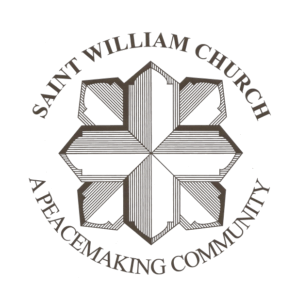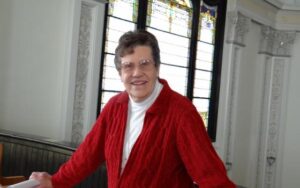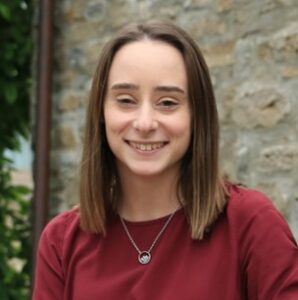Forming ourselves for courageous conversations

In the last two weeks I have attended synodal listening sessions at two local parishes in Miami. It’s been fun to meet new people in my community and delve into deeper conversations about our joys and concerns with the Catholic Church as well as our hopes for what a more synodal, listening, participatory, inclusive Church could look like.
A few lightbulbs turned on. I’m understanding better how this encounter/listen/discern process which Pope Francis is inviting us to participate in is challenging us to become a people that can journey together. The essential question of the Synod is: What steps does the Spirit invite us to take in order to grow in our “journeying together”?
At Our Lady of Guadalupe Church, the 30 people who arrived for the listening session took some time to begin in prayer and to engage in faith sharing in groups of three. Afterwards each small group had an hour to work on three questions and to write notes we submitted. We started off by reminding one another that it was ok to have divergent opinions and that we would listen to one another respectfully, centered in our own experience.
The particular questions were designed by the Miami synodal team; other dioceses might ask different questions. First question: What fills you with joy about the Catholic Church? What causes you concern about the Catholic Church? Our group was surprisingly vulnerable and candid in our responses, yet also respectful. There was lots to share.
We then moved onto the second question: Are you encouraged to speak up courageously and responsibly about challenges and concerns? Do you feel heard? Do you listen to the voices of others? How can we create greater opportunities for people to be heard in Church and in the public square?
With this question, I saw the hope of the synodal process as well as the enormous work that lies ahead of us. In a world fraught with polarization and fracturing communities, imagine if we, the people of God, can embrace this journey of learning how to have courageous conversations. Imagine if we can learn how the Holy Spirit seeks to guide and form us in learning how to move forward together.
The third question centered on what kind of support do you and others need to grow in your personal relationship with Jesus and how can the Church accompany and support with this.
In my small group, we practiced listening humbly without interrupting, for a while longer than we might initially feel comfortable. No need to defend. No need to react. Letting the Holy Spirit hold this conversation. Sharing a few sentences of our own from a place of courage and vulnerability. Noticing the Spirit flowing back and forth as we created the safety to speak. Noticing the places of agreement, and noticing where someone’s experience was very different from my own. Then a bit of holy silence and a return to prayer to end the evening.
An hour of listening humbly and speaking courageously and responsibly was enough to establish a bond of friendship in my group, and we exchanged emails and a desire to see one another again. I left that evening feeling a greater sense of belonging in my community.
—
A week later, I brought my elderly father to another listening session at Our Lady of Divine Providence Church. The same reflection and questions were used. However, we were only given 5 minutes per question and the experience felt rushed and not as satisfying. The difference between 15 minutes versus an hour of listening in a small group is significant.
One good innovation is that Divine Providence invited us to take additional question sheets and reach out to people who have stopped going to Church. I appreciated that we were being invited to own the encountering and listening process and to serve our Church by engaging others in meaningful 1 to 1 conversations. So often someone stops going to Mass and they never receive a phone call, or an email, or any gesture that their presence has been missed and asking if they are ok.
Imagine a synod process where we each feel empowered to reach out to people who often get excluded or whose voices may be silent – the woman at the well, the paralyzed man, young adults, the elderly, undocumented folks, LGBTQ+ friends, Black Catholics and other people of color, former Catholics, even people of other faiths.
What listening experiment do you want to try during the next sixth months of this synodal journey? What is one courageous and vulnerable conversation you would take the risk to have?
The synod is now. Let’s make the road by walking…hope we can find ourselves surprised by who we meet and what we discover along the way…


